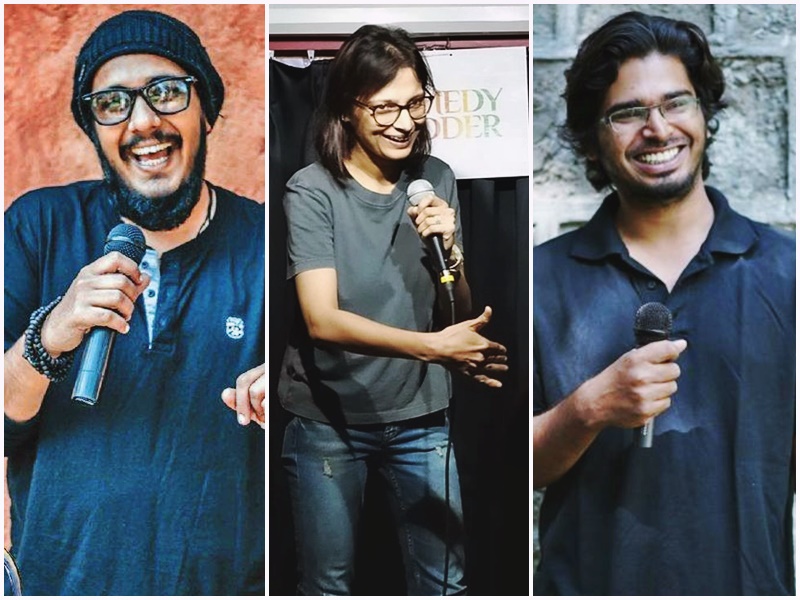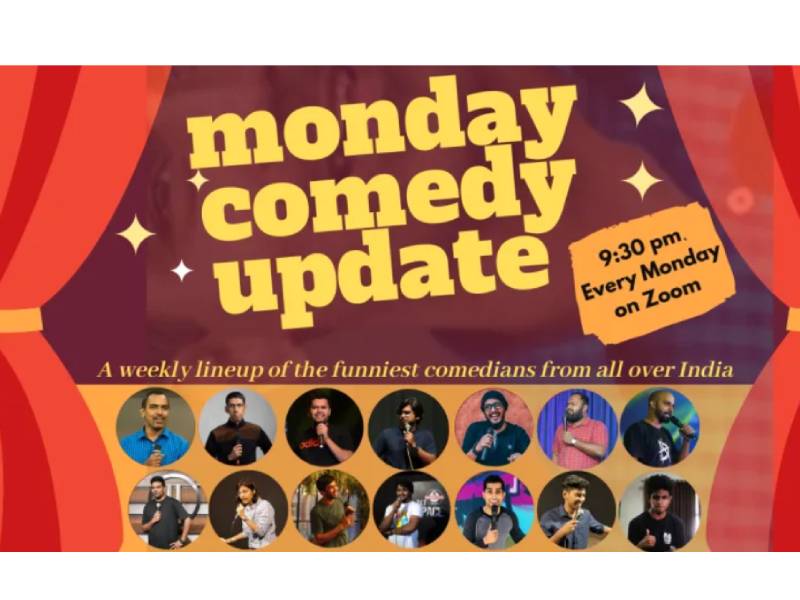Stand up comedy in Hyderabad goes digital, thanks to COVID lockdown
By Priyali Dhingra
Hyderabad based stand-up comedian Bhavneet Singh can now hear parents yelling and cookers going off in the middle of his act, all thanks to the digital route their industry has taken.
Much like any other profession, stand-up has also made comedians "work from home". While most say that it has brought along a new set of challenges, some are using it to tighten their comic acts.
For big-league comedians, the 20-minute stand-up acts have now turned into hour-long Zoom conversations or YouTube gaming sessions with their audience. For the ones running in the little league, adaptation has mostly been the carryover of a pre-existing format.
Hyderabad comic industry was close to witnessing its boom when the pandemic hit. "We were about to have the city's first comedy club, but now that has been dropped," says Bhavneet, who quit his job last year to dedicate his time to stand up comedy.
While he was able to perform eight acts every week before the pandemic, it has now been limited to a few shows online. "In the last three weeks, however, we have completely moved online," he adds.
Bhavneet, along with several other Hyderabad based comedians, perform stand-up shows on Mondays, Wednesdays, and Tuesdays through Zoom sessions. On the weekends, the comedians have their solo or duo shows."Our audience online ranges from anywhere between 3 to 100," he adds.
While the number of audiences is not too bad, it is the lack of a traditional open-mic setup that Bhavneet misses.
 Monday Comedy Update,
Monday Comedy Update,
as performed by Bhavneet Singh,
Hriday Ranjan, and Rupali Tyagi with several other comedians.
For Hriday Ranjan, another leading comedian in the city, his job now involves repeatedly persisting people to keep their microphones and videos on during the live shows. "We need every feel of a traditional stand-up act that we can harbor so that we can reciprocate energies and carry on the show," he says.
Comics, Hriday adds, are now directly competing with platforms such as Netflix, Youtube, or Amazon Prime, which has made their audiences dwindle.
Laughter from the audience, which once was proof that their act was being enjoyed, now reaches the comedians five seconds after their joke is over. "Disruption in internet connectivity causes lag in laughter," Hriday adds.
The lag in internet connectivity has also made these comics tighten their act. "We have had to work on our joke delivery because even a 2-3 second gap seems like an eternity now," Bhavneet adds.
The comics also experience more heckling than usual since it's not just them who have a mic anymore.
For some comedians, however, the digitization has created other barriers. Leading comedian, Rupali Tyagi, was hindered by poor internet at her home for the first three months of lockdown. "I hardly did any spots because I was facing internet issues. Moreover, I had a mental block around doing comedy online,” she says
However, any sort of income from the profession has completely vanished. "Our bills were paid only by the corporate shows that we were signed for," says Hriday.
After the pandemic, corporate companies have stopped inviting comedians for gigs because of an economic hit. "Stray shows happen sometimes, but it is usually given to the comedy-elite, the ones who already have a mass following and are confident of their fan-base," he adds.
Since the Zoom shows they do are either free or capped at Rs 200, and have about eight comedians in the lineup, it hardly pays for their meals.
While neither of the three picture themselves sticking to this "digital comedy" once things get back to normal, they presume that it will branch out into a different format altogether. "It gets me closer to the feeling of actual stand-up, and that is better than not having it at all," Bhavneet adds.
Since the comedy scene in Hyderabad is scheduled to be witnessing a boom, Rupali feels that online shows can be used to augment live shows, thus creating a wider audience base. "I see it as a blend in the future," she adds.